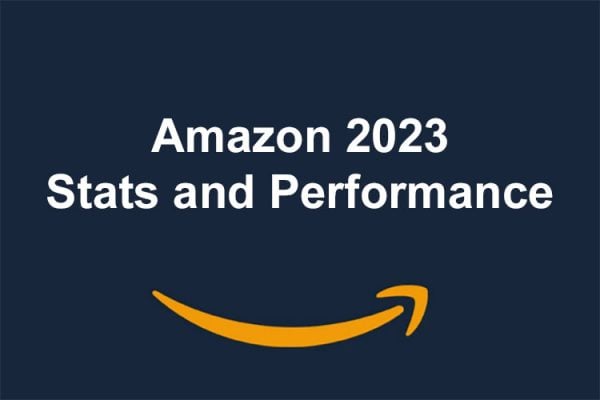I ran across an interesting article today that didn’t ask the question how technology can help users find what they want, it asked how technology can help people discover what they didn’t expect to want.
That got me thinking, yesterday I was out shopping with a friend for storage boxes. We specifically visited a home retail outlet to buy boxes and we wanted them today. However whilst wandering through the store I spotted some crockery which I knew she would love and pointed them out to her. The result was she purchased the accessories (Tea, coffee, sugar pots, spoon rest, and pictured glass chopping board) and I bought the dining set (Dinner plates, bowls, side plates). In fact as it was a set of four places I bought two sets for her and we called it a late birthday present.
The thing is she didn’t want or need a new crockery set. We weren’t looking for them and we would never have purchased them if we hadn’t stumbled upon them while looking for something else.
The article was written by Marc Leibowitz, VP Business Development and Marketing, StumbleUpon, the company that eBay once purchased full of hope for helping shoppers to find the things they didn’t expect to want. eBay later sold Stumbleupon back to the founders, unable to find a use for it. More recently eBay purchased Hunch for the same purpose.
I buy lots on eBay, I’ve lost count of the number of times I’ve grabbed my laptop to make an impulse purchase on eBay for something I just had to have. However I can’t remember the last time I bought something on eBay that I didn’t know I wanted.
That’s a problem that not only eBay but also Amazon and many other sites have yet to solve. Both eBay and Amazon fall foul of the easy trap, showing me the similar items to the last products I searched for or purchased. Just how many beds and drills do they think I need? At the moment eBay are showing me a vast selection of mobile phone micro SIM to Sim card converter cards as that was the last thing I bought. Guess what, I don’t want or need any more!
Daily deals have gone some way towards showing me things I might want buy but didn’t know I wanted, but that’s limited. Sometimes it’s spot on and I purchase, more often it’s not what I want. When I do know what I want retail sites search engines button hole me into a category leaving me no opportunity to make a random purchase.
 The sites need to realise that if I buy, for example a duvet with a picture of a dog on it, then I might be in the market for dog mugs in six weeks time. If I buy a cat flap this week I might be a cat lover and purchase a tea towel decorated with cats in the future. I might even buy something a little more obscure such as a clock in the shape of a cat. Equally someone else may have a cat or dog and the last thing they would ever buy are cat and dog related items, retailers need to know which camp I fall in.
The sites need to realise that if I buy, for example a duvet with a picture of a dog on it, then I might be in the market for dog mugs in six weeks time. If I buy a cat flap this week I might be a cat lover and purchase a tea towel decorated with cats in the future. I might even buy something a little more obscure such as a clock in the shape of a cat. Equally someone else may have a cat or dog and the last thing they would ever buy are cat and dog related items, retailers need to know which camp I fall in.
Even that doesn’t go far enough though, I want online retailers to show me the cat clock even if I’ve never purchased any cat related items along with other things I want to buy but don’t know I want.
This article isn’t supposed to be a criticism of eBay or Amazon. I simply pose the question how can the sites improve and as Mark says in the original article “It’s important to match users by their potential to be like-minded, without assuming too much from their expressed likes and dislikes or from their stated social connections”.
We don’t always know what we want but we do want to be shown it anyway. That’s the next challenge for marketplaces and retailers to crack.











7 Responses
A good article Chris. I tend to buy stuff I did not know I needed, because I read or saw advances in technology which resolved a previously unresolvable problem, or made a task easier to complete. Also finding something that when put together with other existing technology allows for a better life experience.
Ebay Daily deals go a little way in doing this by highlighting new technology, but they could go alot further and be alot bolder in their offerings. Dixons, the retailer used to have the strapline of being the first for new technology, and therefore I used to browse their website for new things. I often visit my local PC World to see what new stuff they are offering – often then inspired to research something later online.
Very interesting article. It’s why ebay used to be more interesting, and why Best Match is so useless.
If I have just bought a TV, for example, showing me other TVs is actually the thing I am least likely to buy.
Am I the only one that ebay will persist in showing me my own items to. The one thing I can guarantee that I will not buy from ebay is my own items. Why? Because I can just go into the Store-room and pick them up. Yet time and time again its my own items that I am shown or even worse the same items but from other sellers.
Mind you there is one item that I am for ever being shown. I have it for £0-99 as Like New another seller has it for £26 odd as Good. Before anybody says that mine is under priced I believe that it is totally correctly priced but ebay will persist in showing me the £26 copy.
Great article Chris.
With Ebay, Amazon and Google all working harder and harder to make sure what you search for gives you an exact match won’t this cut out accidentally finding things you didn’t need?
Plus surely this is where the high street will always beat the Internet if done well? I was always banging on about mixed merchandising rather than strict departments when I worked in B&M retail, because I thought it worked well.
I don’t think technology will ever be able to replicate walking round the shops for ideas and where you end up buying something you didn’t come out for?
they could show me tenners for sale at a fiver and I would not notice
I have auto blinkers and just blank it out
It is interesting to see how technology has improved in past couple of years. I do buy something that is related to a product and like Amazon way of showing related lines.
Heard about google getting clever with the shift attempts to go beyond mere words and into the world of entities, attributes and the relationship between those entities.
It will be interesting to see this translated in eCommerce sites.